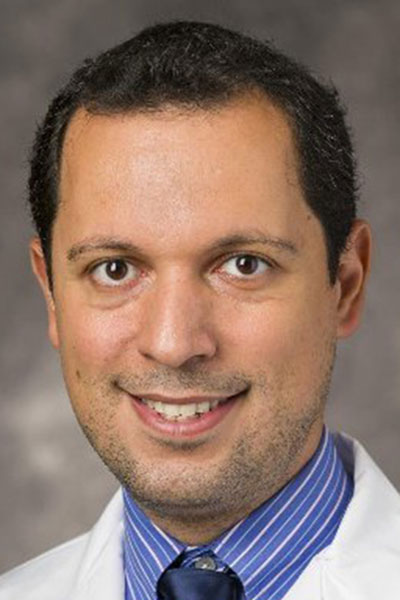More than 50 years after the end of the Tuskegee Experiment, the reverberations of the ethical missteps from that research can still be felt throughout medicine.
On Tuesday, May 23, Research Integrity in Medical Education: Lessons from the Tuskegee Experiment will feature a facilitated panel discussion on how to avoid history repeating itself. The interactive session will take place from 10:45–11:45 a.m. ET in Room 207 A-B (Level 2) of the Walter E. Washington Convention Center.

“This is about research integrity, the importance of ethics in conducting research, and learning from lessons from the past when we did not uphold these standards to help us keep that insight as we conduct further richer research into the future,” said session Co-Chair Maroun Matta, MD, clinical assistant professor, Case Western Reserve School of Medicine.
For 40 years, beginning in 1932, the Tuskegee Study of Untreated Syphilis in the Negro Male was conducted in Alabama, first by the U.S. Public Health Service and then by the U.S. Centers for Disease Control and Prevention. The 600 participants—all Black, and most poor and uneducated—did not know they were part of a government study.
“They thought they were participating to get free treatment for a condition they didn’t understand. They were only getting aspirin and some vitamin placebo, so they really weren’t getting any therapy. They even underwent invasive procedures like lumbar punctures,” Dr. Matta said.
These men were intentionally misinformed and effective medication was withheld despite the availability of existing therapy because investigators wanted to study the natural course of disease.
Several papers on the Tuskegee Experiment and the destructive nature of untreated syphilis were published while the study was taking place. Amid all of these reports, there was no commentary from physicians or scientists criticizing the ethics of the experiment. Then a psychiatric social worker hired by the USPHS, Peter Buxtun, began to interview patients with venereal disease. After raising his concerns about the ethics of the study with the USPHS, Mr. Buxtun contacted the press, and the Washington Star newspaper published the story.
“It wasn’t until the people in the community, not necessarily the medical field, read about what was going on that this came to light,” Dr. Matta said.
Sen. Edward Kennedy conducted congressional hearings into the Tuskegee Experiment in 1973, resulting in the passage of the National Research Act and establishment of institutional review boards, principles of informed consent, and protection of vulnerable populations.
“The institutional review boards were a direct consequence of the Tuskegee Experiment. We have that layer that if you want to conduct research, it has to go through that body at the institution that will look at the participant, that would look at the capacity to get consent, that will try to protect underprivileged populations,” Dr. Matta said.
But the protection of the IRB is not failsafe.
“There’s still a risk of doing things—knowingly or sometimes unknowingly—that are not right. The people on the IRB are very helpful in preventing this,” Dr. Matta said. “And then having governance bodies and having more awareness and having more transparency in what we’re conducting and keeping an eye from the general population, not just the medical field, on what’s going on is definitely one of the consequences that have been helpful, but in no way, shape, or form are we immune to some of those things happening now in research or in delivering medical care.”
Other panelists include session Co-Chair May M. Lee, MD, FCCP, FACP, ATSF, Keck School of Medicine at the University of California, Los Angeles; Meshell Johnson, MD, University of California, San Francisco; Geneva B. Tatem, MD, Henry Ford Hospital, Detroit; and Aaron Baugh, MD, UCSF.
Dr. Matta hopes attendees will leave the session with a better understanding of the reasoning behind some of the IRB safeguards researchers contend with and an appreciation for the concept that authority and ethics are not always synonymous.
“Having a high degree does not mean that you have high ethical standards, and that’s the lesson that we have learned from the past,” he said. “Everybody should be a good citizen and play their role. When they’re conducting the research, follow all the appropriate channels and make sure that everything is done in an ethical and beneficial way, but also question others who come up with their experiments on the integrity of the work that was done and its ethical grounds.”
Extend Your Learning Beyond San Francisco with ATS 2025 Conference Highlights

With so many valuable educational opportunities offered during the ATS 2025 International Conference, attendees are often forced to decide which sessions to prioritize. That’s why the Society is offering three ATS 2025 Conference Highlights packages for those unable to attend ATS 2025 San Francisco or attendees interested in continuing their education after the conference. Check out the packages and pick the one that’s right for you. Learn at your own pace, whenever and wherever you are!

